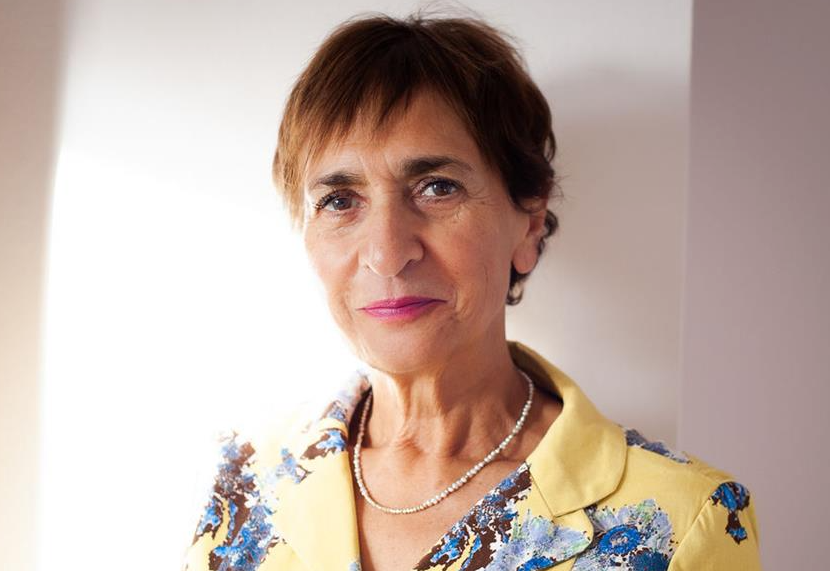Younger people are more likely to volunteer and promote good causes than older generations, research has found.
While half of generation z and millennials volunteer for charities, the proportion falls to three in ten among generation x and just over one in four among baby boomers.
Similarly, while almost two in five in generation z and more than a third of millennials say they promote charities they support, this drops to less than three in ten among generation x and one in four baby boomers.
The findings have emerged in a report by Blackbaud, which involved a survey carried out in June this year that gathered the views of 1,015 people.
This looked at differences in generational support for charities in the UK and Ireland between generation z (aged up to 27), millennials (aged to 28 to 43), generation X (aged 44 to 59) and baby boomers aged over 60. Eight in ten of those surveyed are from the UK.
Advocacy for charities, where support extends to active participation in causes and lobbying, such as signing petitions, is strongest among generation z and baby boomers. A third of these spend their time on such activities, compared to three in ten millennials and generation x.
In terms of financial donations, just under four in five millennials, generation x and baby boomers give to good causes, compared to almost seven in ten in generation z, who earn less than older workers.
According to the report generation z “find volunteering an important avenue to make a difference, and they are much more likely to find advocacy actions” to be an “impactful way to support causes they care about”.
It adds: “The popularity of volunteering is more evident in younger generations and goes down with age”.
Blackbaud found that only just over one in ten of baby boomers believer volunteering to be the best way they can make a difference. The proportion rises to more than one in five among generation z and just under one in five among millennials.
Instead baby boomers “find word of mouth and advocacy actions more impactful”.
One generation z respondent said that volunteering is important as it means people “can help first hand”.
“When donating money you don’t know where it goes or how much of it goes to the actual cause”, they added.
A millennial respondent added that they “can’t afford to give money, but I can give time to help others”.
Just over one in ten generation z and millennials volunteer through workplace programmes and one in five millennials have donated through a giving programme at work.
Generations’ top causes
The top causes supported by generation z are health and children’s charities. Three in ten support charities helping people in these sectors.
Animal protection, older people’s support and environmental causes are backed by more than one in five generation z.
Children and health charities are also the most popular good causes among millennials, although their support is greater. Around four in ten in this age range back these charities.
Meanwhile, generation x’s top good cause is health, with four in ten backing charities in this sector. Animal protection charities are more popular among this generation, supported by more than a third in this demographic.
For baby boomers health is the top good cause, backed by half of those in this age range. Similar to generation x, a third support animal protection charities. Charities supporting older people are backed by more than a quarter.
Blackbaud notes that good causes which support immigrant or refugee rights are more popular among generation z and millennials than the two other older demographics.
Baby boomers are “also more likely to support military troops or veterans”.
Flexible volunteering
Charities are recommended in Blackbaud’s report to ensure they adapt their communication and campaigning strategies to better target “the unique preferences and behaviours of each age group”.
This include focusing making sure information and details on how to support a charity are clear. This is particularly the case among millennials who are the most likely age group to give if they find it easy to donate.
Also needed is flexible volunteering options that are close to candidates' homes and are at convenient times, especially when targeting younger recruits.
It found that four in ten potential volunteers are deterred by a lack of flexible options.
“Different generations offer different kinds of support, and you should tailor your communication channels and support methods according to the preferences of the
generation you wish to target,” said Blackbaud.
“For example, generation z are the most active volunteers, and they are likely your best bet if you are looking for new volunteers. While also active donors, their typical giving amounts are lower than those of the other generations.
“Focus on social media and digital engagement strategies that resonate with generation z.”
This mirrors previous research into volunteering published over the last two years.
In 2023 the think tank Pro Bono Economics found one in six 18- to 34-year-olds aimed to volunteer for the first time that year. But a survey by agency Walnut, also published in 2023, found half of young people are struggling to find suitable volunteering roles.
Elsewhere, two in five 18–24-year-olds are considering becoming trustees, up from a quarter five years ago, according to survey published in November by insurer Ecclesiastical and Young Trustees Movement.
Latest News
-
Civil Society Covenant blighted by delays and U-turns, report warns
-
More than 30 jobs at risk as hospice charity looks to close home care service
-
Cranfield Trust: A guide for charity leaders on navigating local authority devolution
-
Friday funding roundup - 20 February
-
Former youth charity chief to lead corporate social responsibility organisation
-
Christian charity’s failed bid to buy a new church breached fundraising code
Charity Times video Q&A: In conversation with Hilda Hayo, CEO of Dementia UK
Charity Times editor, Lauren Weymouth, is joined by Dementia UK CEO, Hilda Hayo to discuss why the charity receives such high workplace satisfaction results, what a positive working culture looks like and the importance of lived experience among staff. The pair talk about challenges facing the charity, the impact felt by the pandemic and how it's striving to overcome obstacles and continue to be a highly impactful organisation for anybody affected by dementia.
Charity Times Awards 2023
Mitigating risk and reducing claims

The cost-of-living crisis is impacting charities in a number of ways, including the risks they take. Endsleigh Insurance’s* senior risk management consultant Scott Crichton joins Charity Times to discuss the ramifications of prioritising certain types of risk over others, the financial implications risk can have if not managed properly, and tips for charities to help manage those risks.
* Coming soon… Howden, the new name for Endsleigh.
* Coming soon… Howden, the new name for Endsleigh.
Better Society

© 2021 Perspective Publishing Privacy & Cookies














Recent Stories